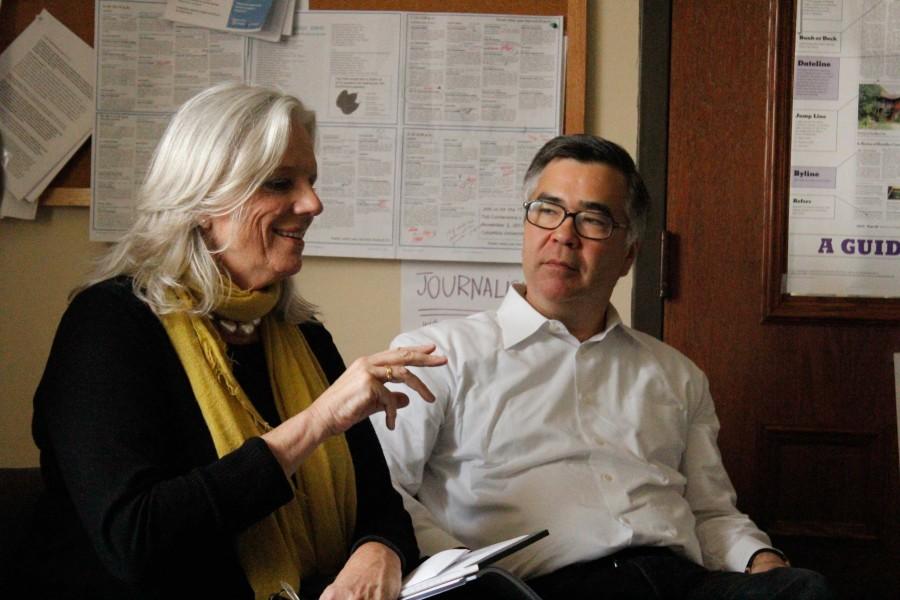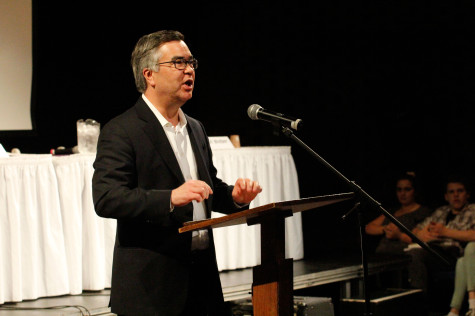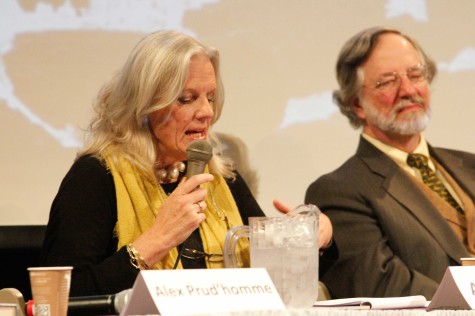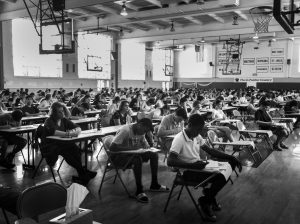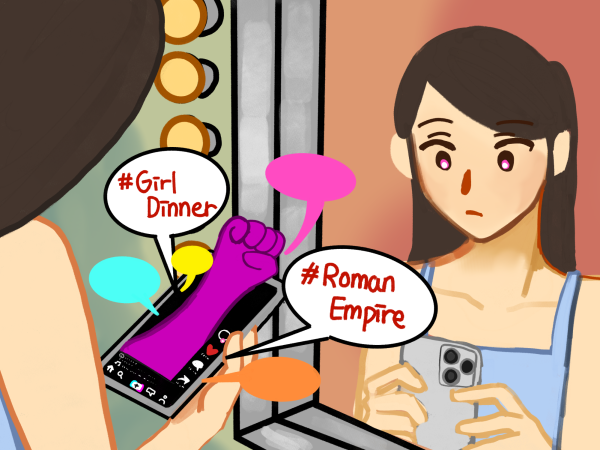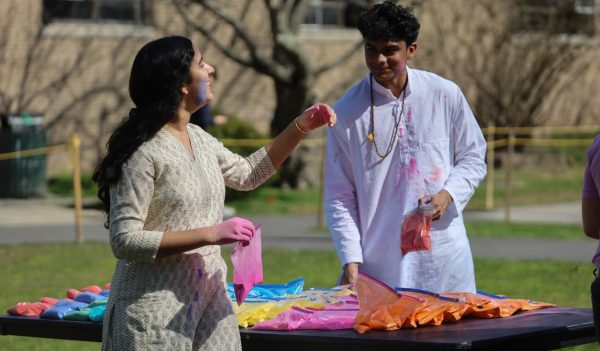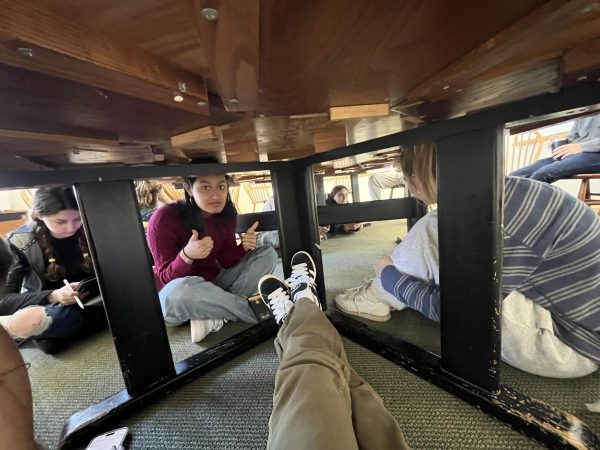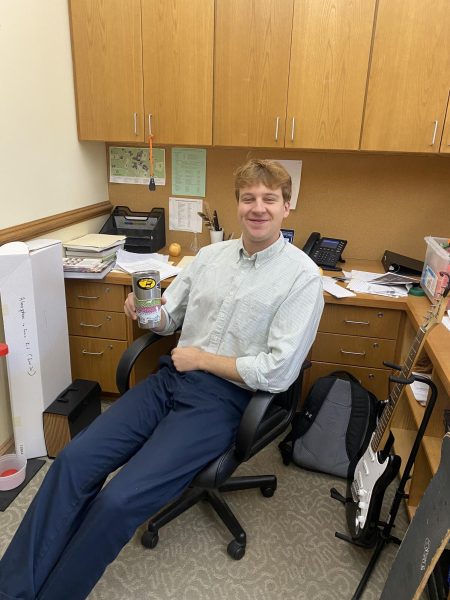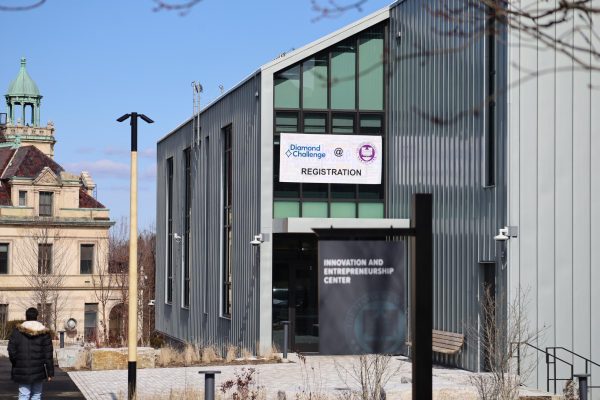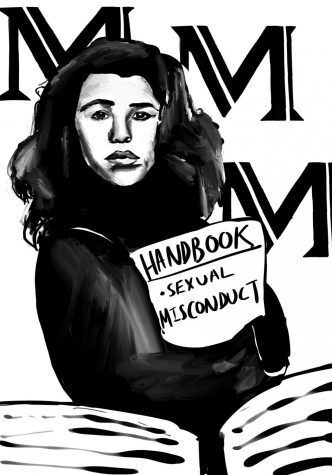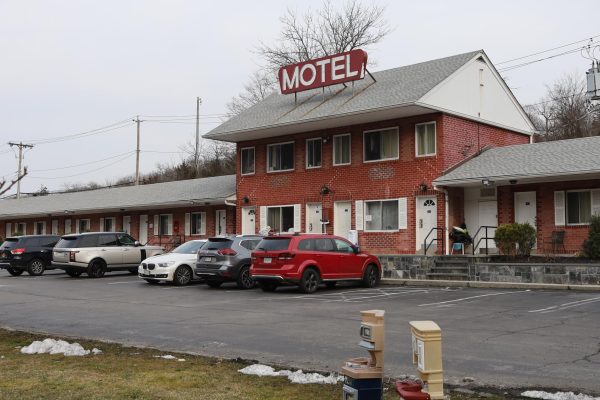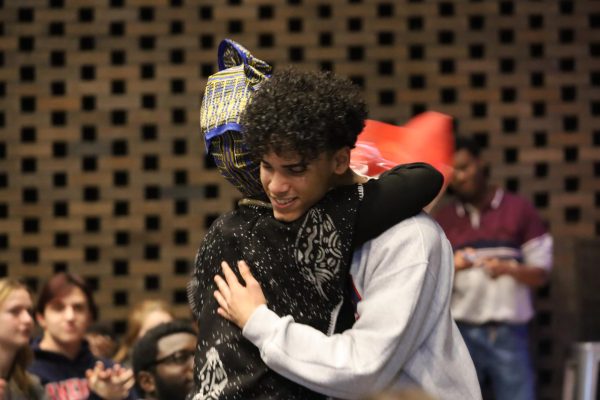Interview with Alison Jones and Karl Weber
May 9, 2014
On Earth Day, I had the pleasure of speaking with and interviewing Karl Weber, editor of Last Call at the Oasis, and Alison Jones, photographer and director for No Water No Life. Jones spoke about photography and Weber about his writing, but what connected the two was their involvement in the environment, mainly, water. Both used their talents (of photography and writing, respectively) to turn this interest in the environment into specialties.
No Water No Life homepage: http://nowater-nolife.org/index.html
Participant Media, Last Call at the Oasis: http://www.participantmedia.com/pm-films/last-call-at-the-oasis/
Q: What was your inspiration for getting involved in writing?
Karl Weber:
“I’ve always been a writer since I was a small child; I was very much interested in working on books that were really important to me. In the case of Last Call at the Oasis, I worked with a publisher called Public Affairs, and Public Affairs does companion books for Participant’s Films and I’ve edited most of those. So, it’s been a fantastic experience for me to work on the book related to this movie, Food Inc., Waiting for Superman, Steven Spielberg’s Lincoln, among others. I like to work with movies that have great social messages and to work on books that help to expand that message of why it’s so important.”
Alison Jones:
“After my children were grown, I thought I wanted to be a writer. But shortly after I embarked on daily practice in writing, I found I didn’t like being indoors on the computer all the time. I said to my family, “I have to be outside. I have to be with people,” So I became a photographer and photojournalist, which is sort of the next step. It got me outside, but having ended up as Director of “No Water No Life,” the irony is that I’m back to writing, so I’m indoors on the computer much of the time. Plus, now that photography is all digital, I spend most of my time sitting at the computer unless out on expedition or assignment.”
Q: How did you get involved in environmental studies?
Alison Jones:
“As a nature photographer, I found out how much I cared about the environment, so I got into conservation. I started my interest in conservation in Africa, and through friends there, I became involved in starting a community-based conservancy 12 years ago. Despite many who doubted its future, the conservancy is still a East African success and model for other areas. After that, I spent 3 years in Africa flying in a little Cessna over 9 sub-Saharan countries seeing that where there’s no water there’s no life. No Water No Life became the title of my nonprofit organization — my focus for the last 8 years.”
Karl Weber:
“I got involved in doing books of this kind in a somewhat unusual way. I was a business book editor for a number of years and I got involved with more and more projects involving the social responsibility of businesses. So, for example I collaborated on a couple of books with a consultant named Andy Savitz who is an expert on environmentalism and social responsibility of businesses. We did a book called Triple Bottom Line which is considered kind of a classic in its field. I also worked with Muhammad Yunus, who founded Grameen Bank in Bangladesh, whose mission is to alleviate poverty. So I found all these years more and more people now come to me, they even kind of know me from this field and so more and more people who are interested in writing about the social responsibility of business will come to me for help with their books. It’s become a sort of specialty of mine; something I certainly believe in, and I also enjoy the opportunity to work on it.”
Q: Is that one of the reasons you decided to work on Last Call at the Oasis?
Karl Weber:
“Well, Last Call at the Oasis, that is part of the series that I mentioned before of companion books to films and the company that made the movie, Participant Media, specializes in doing films with a social message. And so this is one of the movies that they asked me to edit a companion book for, this one happens to have an environmental message, others like Food Inc. is about industrial farming. Each one has a different theme but they all are about what we need to do to make the world a better place.”
Q: Through your research for these different projects was there anything that disappointed you?
Alison Jones:
“I think that the sense of partnership is really key to avoid being discouraged. In this Tower Lab, you have your partnership with fellow authors; and I have mine with the stewards and scientists working in different watersheds. No Water No Life has affiliated itself important groups working on watershed issues, including American Rivers, International Rivers, and The Nature Conservancy. We work with US Fish and Wildlife. We interview the EPA, TVA and US Army Corps of Engineers. This ability to communicate and work together keeps me upbeat.”
Karl Weber:
“I would echo Alison’s sense of hope in that young people in particular, but much of the world is moving in the right direction in terms of their thinking. To me the biggest disappointment is that the political dysfunction in our society is making it harder to make the right kind of progress, like the Clean Water Act and the founding of the EPA both happened under Richard Nixon, who was a conservative Republican. Today that probably wouldn’t be possible because kind of resisting environmental laws has become almost a trademark of one of the major political parties and so the fact that it’s become a political football as opposed to something all Americans can agree on and work on together, that’s pretty disappointing to me and I’m hoping that will change.”
Q: Now, on the opposite side, are there any positive things that you found when looking into this that you didn’t think you would see?
Alison Jones:
“What amazes me over and over is the grassroots commitment of people to protect their watersheds. They seem to be coming out to join together everywhere I go. They are educated, often thanks to Google searches, articulate and full of passion. They are the “Voices of the River” – the ones who care and are making a difference. As well there’s awesome new technology that will help us solve our issues of water availability, quality and usage. One of the greatest tech surprises I’ve had is finding out that water recycled from sewage actually does taste great! It’s cleaner than any other water we drink.”
Karl Weber:
“I’m optimistic about the ability of technology to help solve a lot of the problems. Nothing’s going to solve itself, but I think smart technology used for reducing waste, getting water resources to where they’re most needed, protecting them, I think all of those, if we have the will as a society to put them in place I think can make a huge difference in the next generation or so.”
Q: Is there anything you would want to say to someone starting off in journalism or writing?
Karl Weber:
“Be open minded and adaptable because the world of publishing is changing so rapidly that where it’s going to be in ten years from now is totally unpredictable so be totally open minded and willing to try anything.”



